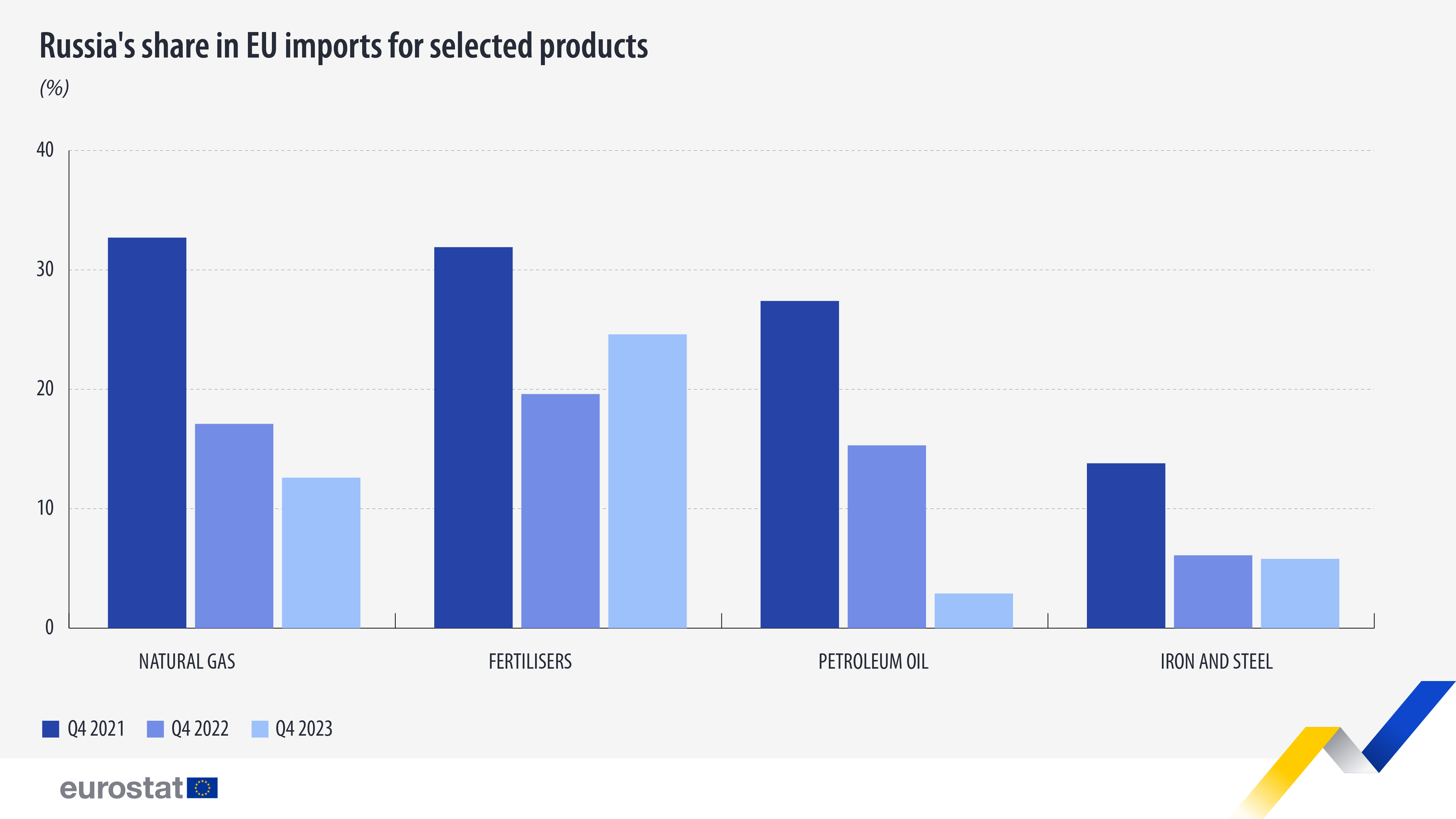Reduced levels of EU-Russia trade continue

EU trade with Russia has been strongly affected by import and export restrictions imposed by the EU following Russia's invasion of Ukraine.
Both exports and imports have dropped considerably below levels prior to the invasion. Seasonally adjusted values show that Russia’s share in extra-EU imports fell from 9.5% in February 2022 to 1.9% in December 2023, while the share of extra-EU exports fell from 3.8% to 1.4% in the same period.

Source dataset: ext_st_eu27_2020sitc
In March 2022, a peak trade deficit with Russia amounted to €18.6 billion due mainly to high prices of energy products. This deficit was brought down to €0.1 billion in March 2023 and did not change much until December 2023 when it amounted to €0.8 billion.
Russia's role in extra-EU imports has diminished for their main products
Altogether, natural gas, petroleum oils, iron and steel and fertilisers accounted for around two-thirds of total extra-EU imports from Russia in the fourth quarter of 2023.
Between the fourth quarter of 2021 and the fourth quarter of 2023, Russia’s share in extra-EU imports decreased significantly for petroleum oil and natural gas. Decreases for fertilisers and iron and steel were less pronounced.

Source dataset: ds-045409
Imports of petroleum oil from Russia decreased from 28% of all petroleum oil extra-EU imports in the fourth quarter of 2021 to 3% by the fourth quarter of 2023. The EU’s largest petroleum oil suppliers in the same quarter in 2023 in extra-EU imports were the United States (16%), Norway (11%), and Kazakhstan (9%).
Russia's share in extra-EU imports of natural gas declined from 33% in the fourth quarter of 2021 to 13% in the same quarter of 2023. The EU’s largest natural gas suppliers in the fourth quarter of 2023 in extra-EU imports were the United States (22%), Norway (21%), and Algeria (18%).
For more information
- Statistics Explained article on EU trade with Russia - latest developments
- Thematic section on international trade in goods
- Database on international trade in goods
Methodological notes
The following Harmonised System (HS) codes were used for selected products:
- HS 271111 + 271121: petroleum gases and other gaseous hydrocarbons; liquefied, natural gas and petroleum gases and other gaseous hydrocarbons; in gaseous state, natural gas.
- HS 2709 + 2710: petroleum oils and oils obtained from bituminous minerals; crude and petroleum oils and oils from bituminous minerals, not crude; preparations n.e.c, containing by weight 70% or more of petroleum oils or oils from bituminous minerals; these being the basic constituents of the preparations; waste oils.
- HS 31: fertilizers.
- HS 72: iron and steel
If you have any queries, please visit our contact us page.
